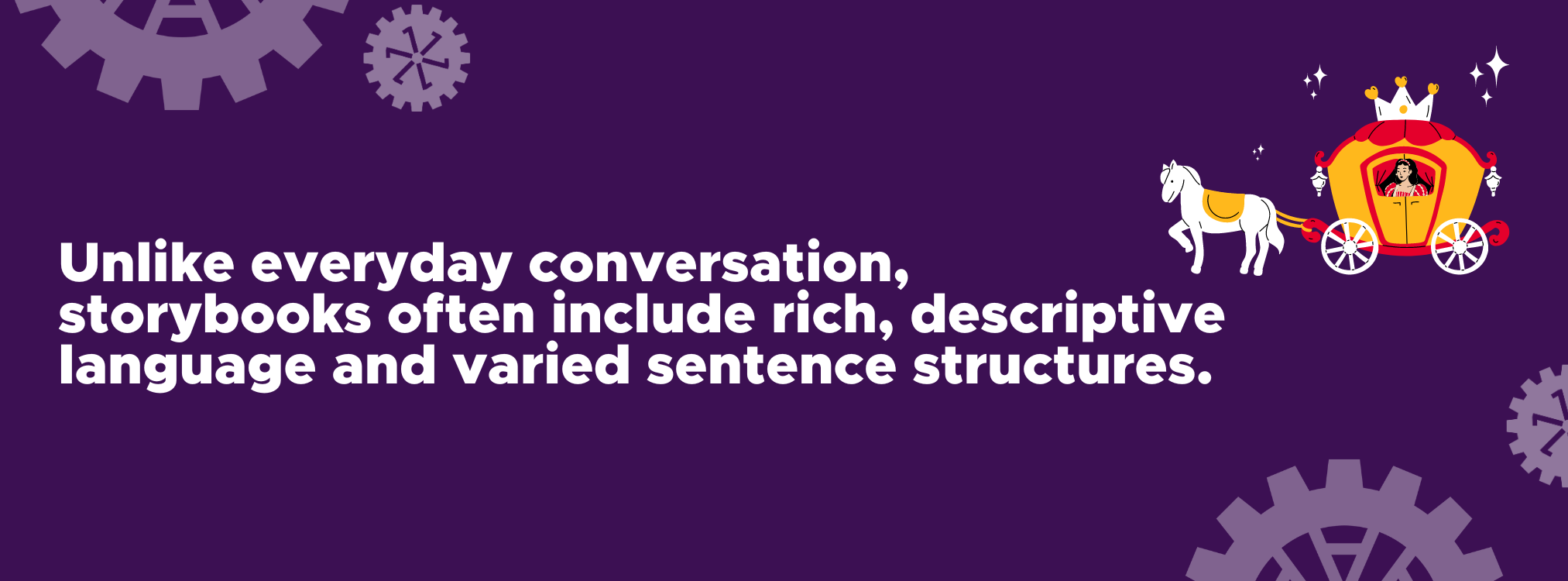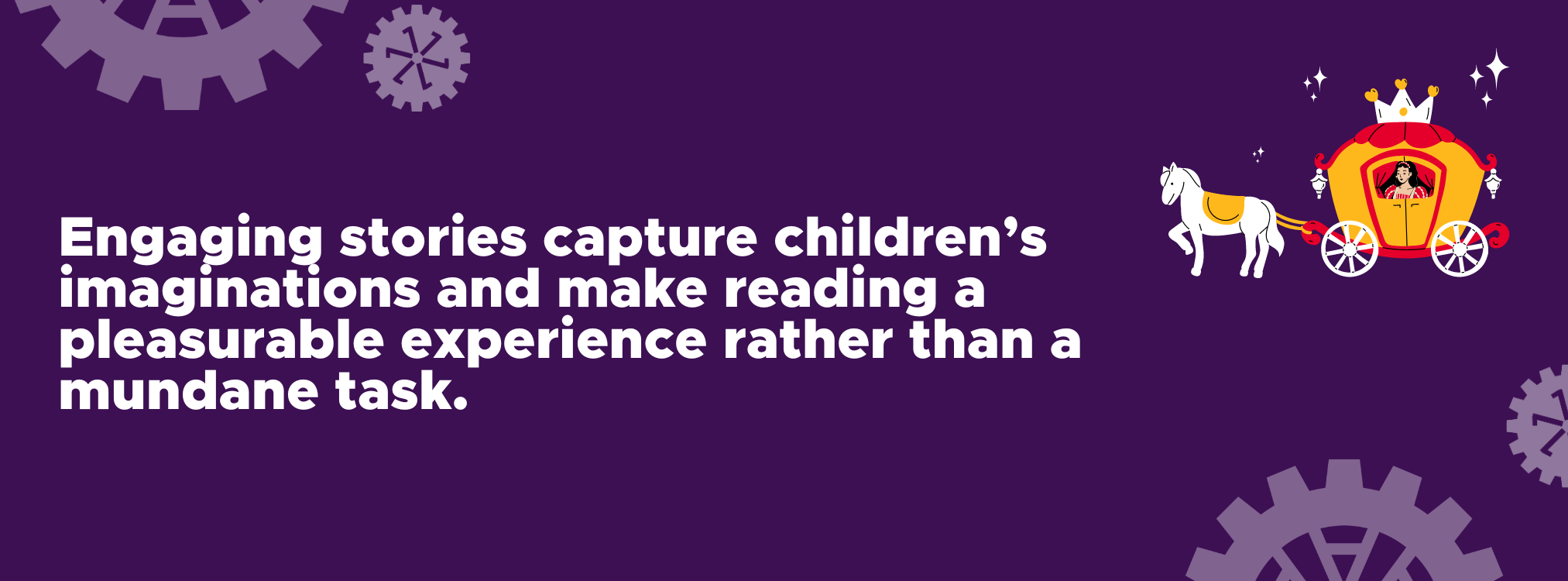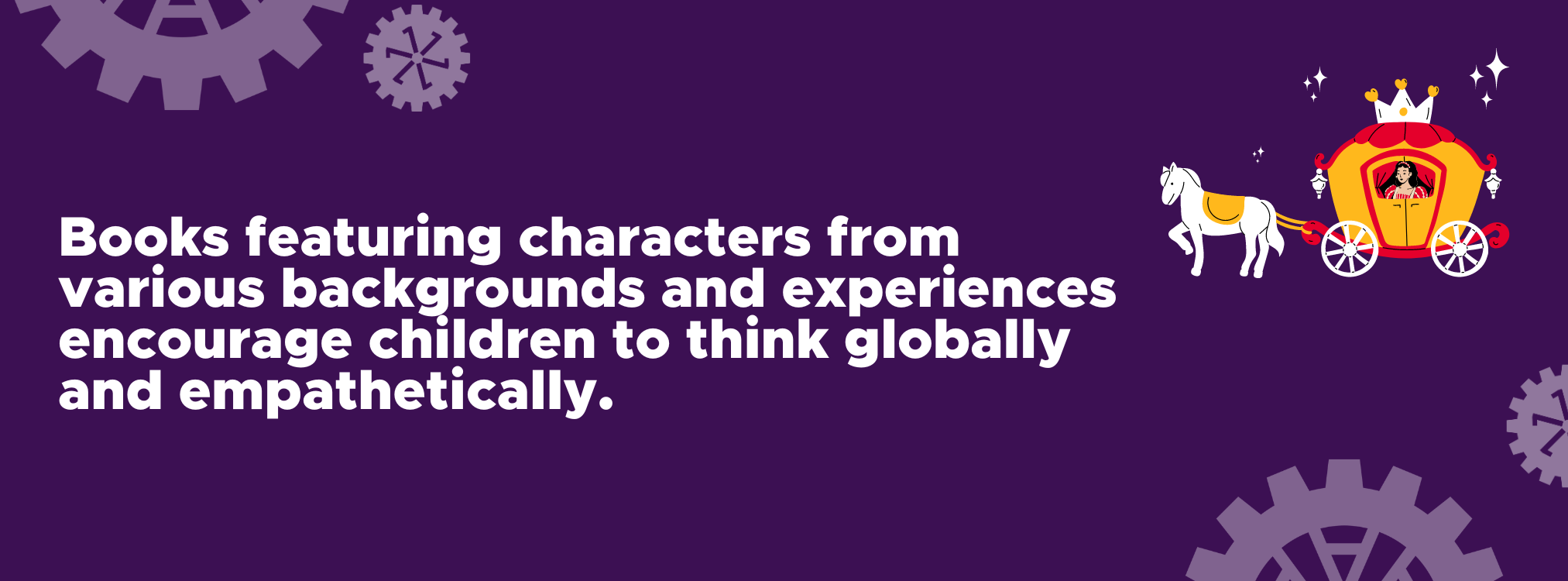The Power of Storybooks: Building a Strong Foundation in English for Children

In today’s fast-paced, technology-driven world, the charm of a well-crafted storybook might seem overshadowed by flashy gadgets and interactive apps. However, the timeless tradition of reading storybooks to children remains an unparalleled method for nurturing a strong foundation in English and fostering a lifelong love for language. Let’s delve into why storybooks are crucial for young learners and how they lay the groundwork for proficient English skills.

Enhancing Vocabulary and Language Skills
One of the most direct benefits of reading storybooks is the exposure they provide to new vocabulary. Unlike everyday conversation, storybooks often include rich, descriptive language and varied sentence structures. This exposure helps children learn words in context, making it easier to understand and remember their meanings. For instance, a story might introduce terms like "glimmering," "treacherous," or "courageous" within an engaging narrative, allowing children to grasp their definitions through context rather than rote memorisation.
Storybooks also often introduce children to idiomatic expressions, figurative language, and different sentence structures. These elements contribute to a more nuanced understanding of English and help children express themselves more creatively and effectively.
Developing Listening and Comprehension Skills
Reading aloud to children is an invaluable practice that enhances their listening and comprehension skills. When a parent or teacher reads a story, they model fluent reading, correct pronunciation, and intonation. This modelling helps children understand how to process and interpret written language. Additionally, listening to stories encourages children to follow narratives, remember details, and make inferences, all of which are critical components of reading comprehension.
Interactive storytelling, where children are encouraged to predict what happens next or discuss characters' motivations, further strengthens their engagement and comprehension. This interactive approach helps children connect with the material on a deeper level, making reading a more active and enjoyable process.
Fostering Imagination and Creativity
Storybooks are not just about learning words; they are windows to imaginative worlds and diverse perspectives. When children immerse themselves in stories, they explore different settings, characters, and scenarios. This exposure stimulates their creativity and encourages them to think outside the box. Imaginative play often follows storytime, where children create their own tales or reenact scenes, thereby reinforcing their understanding and enjoyment of the language.
The ability to imagine and create is closely tied to language development. As children invent stories or dialogue, they practice using language in novel ways, which helps to solidify their grasp of vocabulary and grammar. This creative engagement with language can also make reading more enjoyable and less of a chore.

Building Emotional Intelligence
Perhaps one of the most profound impacts of storybooks is their role in fostering a love for reading. Engaging stories capture children’s imaginations and make reading a pleasurable experience rather than a mundane task. When children associate reading with enjoyment, they are more likely to seek out books on their own and continue reading as they grow older.
Instilling a love for reading early on is essential for academic success and lifelong learning. Children who enjoy reading are more likely to read regularly, which contributes to improved language skills, academic performance, and cognitive development. Storybooks serve as the foundation upon which this love is built, creating a positive feedback loop where the more children read, the more proficient they become.
Encouraging Family Bonding
Reading storybooks together is also a wonderful way to strengthen family bonds. Whether it's a bedtime ritual or a weekend activity, sharing stories creates moments of connection between parents, caregivers, and children. This shared experience not only enhances the child's language development but also fosters a supportive and nurturing environment for learning.
Additionally, when parents and caregivers actively participate in reading, they can guide children’s understanding and interpretation of texts. This involvement helps reinforce the language skills being developed and provides children with a model of enthusiastic and engaged reading.
Supporting Cognitive Development
Beyond language acquisition, storybooks support various aspects of cognitive development. They introduce children to concepts such as cause and effect, sequencing, and problem-solving through engaging narratives. For example, a story about a character overcoming obstacles can teach children about perseverance and critical thinking. These cognitive skills are integral to both academic success and everyday functioning.
Moreover, the structure of stories, with their beginning, middle, and end, helps children understand narrative sequences and organisational patterns. This comprehension is not only useful for reading but also for writing and other forms of communication.

Expanding Worldviews
Storybooks often expose children to different cultures, historical periods, and societal norms. This exposure broadens their understanding of the world and helps them appreciate diversity. Books featuring characters from various backgrounds and experiences encourage children to think globally and empathetically.
By reading about different cultures and perspectives, children develop a more comprehensive vocabulary and a deeper appreciation for language’s role in expressing diverse experiences. This expanded worldview enriches their language skills and enhances their ability to communicate effectively in a multicultural society.
Conclusion
In summary, storybooks play a pivotal role in building a strong foundation in English for children. They enrich vocabulary, develop listening and comprehension skills, foster imagination and creativity, and contribute to emotional and cognitive development. Additionally, storybooks create opportunities for family bonding and provide exposure to diverse perspectives, further enhancing language skills and worldviews.
As parents, educators, and caregivers, embracing the power of storybooks is one of the most impactful ways to support children's language development and instil a lifelong love for reading. In a world where screens often dominate, the simple act of sharing a story can be a profound gift, laying the groundwork for a bright future in English and beyond.
At NumberWorks’nWords, we recognise the crucial role reading plays in children’s daily lives. If you’re seeking additional support for your child, our team is here to assist. Contact us today to schedule a free, no-obligation learning assessment for your child.



